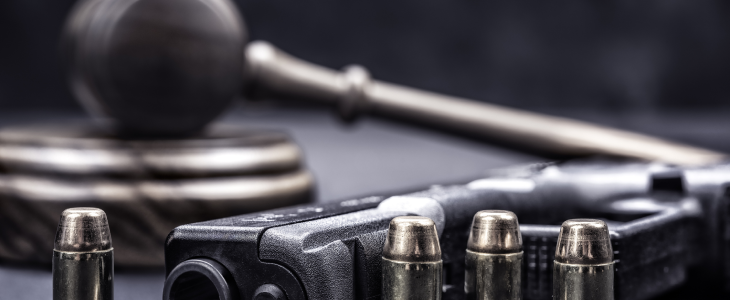Federal weapons offenses encompass a range of charges under U.S. law, directly linked to Second Amendment rights as they are interpreted and applied in court. This area of law blends federal and state regulations, making it a complex field. It’s important to understand the various federal weapons charges, as well as the boundaries of the Second Amendment, and to examine how these elements come into play in legal proceedings.
What Are Federal Weapons Offenses?
Federal weapons offenses encompass several serious crimes under U.S. law, primarily regulated by various federal statutes. These laws specifically address the possession, use, and distribution of firearms and other weapons on a national level. Key offenses in this category include illegal possession of a firearm by individuals who are legally prohibited from owning one, such as convicted felons or persons with domestic violence convictions. Similarly, owning or dealing in destructive devices like bombs or grenades without proper authorization is also a federal crime.
Another significant aspect of federal weapons offenses involves the illegal sale or trafficking of firearms across state lines. This also extends to cases where firearms are possessed or used in connection with other federal crimes, such as drug trafficking or acts of terrorism. These cases are typically enforced by federal agencies, notably the Bureau of Alcohol, Tobacco, Firearms and Explosives (ATF), and are prosecuted in federal courts. Convictions for these offenses often result in severe penalties, including lengthy prison terms and substantial fines, highlighting the gravity and complexity of federal weapons law.
The Second Amendment: Rights and Limitations
The Second Amendment to the Constitution establishes the right to keep and bear arms. Adopted in 1791 as part of the Bill of Rights, it has been a subject of extensive legal and cultural debate. The amendment’s precise wording, “A well regulated Militia, being necessary to the security of a free State, the right of the people to keep and bear Arms, shall not be infringed,” has led to various interpretations about the extent and nature of the rights it guarantees to individuals versus regulated militias.
Despite its guarantee of gun ownership rights, the Second Amendment is subject to limitations. The U.S. Supreme Court has upheld the right to possess firearms under lawful circumstances but also recognized that this right is not unlimited. The Court has affirmed that laws prohibiting the possession of firearms by felons and the mentally ill, or laws imposing conditions on the commercial sale of arms, are consistent with the Second Amendment. This balance between rights and restrictions forms a critical aspect of contemporary legal debates surrounding gun control and individual liberties.
Navigating Your Rights in Court
When facing federal weapons charges, it’s essential to know how to effectively navigate your rights in court. Understanding the legal nuances of your case, including how the Second Amendment may impact your defense, is crucial. A key aspect is having a clear grasp of your constitutional rights, such as the right to remain silent and the right to an attorney. Engaging a knowledgeable defense attorney who is familiar with federal firearms law can make a significant difference. They can offer guidance on potential defense strategies, ensure your rights are protected throughout the legal process, and work towards the best possible outcome. Their experience can be invaluable in interpreting complex legal issues and presenting a robust defense in court.
Get Help with Your Federal Weapons Charge in Michigan
Facing a federal weapons charge can be a daunting experience, and having the right legal support is essential for navigating this challenging situation. An experienced attorney can provide the necessary guidance and advocacy to protect your rights and achieve the optimal resolution of the case. We encourage you to reach out to the Federal Criminal Attorneys of Michigan for qualified legal assistance tailored to your unique circumstances, ensuring your case is handled with the utmost care and professionalism.
Federal Criminal Attorneys of Michigan, rooted in Detroit, assists clients with federal weapons offenses and charges throughout Lansing, Grand Rapids, Ann Arbor, Flint, and all of Michigan.
